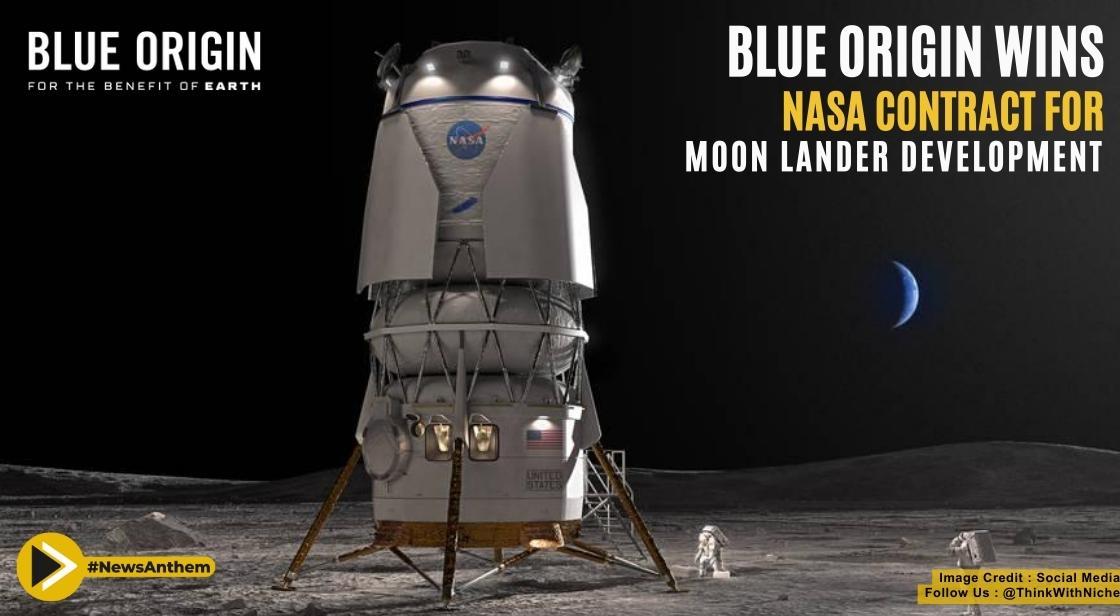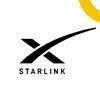Blue Origin Wins NASA Contract for Moon Lander Development

News Synopsis
Blue Origin Outcompetes SpaceX in NASA's Selection Process
In a competitive move against Elon Musk's SpaceX, Jeff Bezos' Blue Origin has emerged victorious in securing a significant contract from NASA. The US space agency has chosen Blue Origin to develop a human landing system for its Artemis V mission to the Moon. The contract awarded by NASA is valued at $3.4 billion, and Blue Origin has stated that its own contribution to the project is even higher, exceeding the awarded figure.
Blue Origin's effort in this venture is part of a more extensive project that amounts to over $7 billion. The company has formed a national team of partners, including industry leaders such as Lockheed Martin, Draper, Boeing, Astrobotic, and Honeybee Robotics, to work collectively on the Moon landing system.
Expressing his enthusiasm for the collaboration, Bezos tweeted, "Honored to be on this journey with @NASA to land astronauts on the Moon—a" this time to stay. Together, we'll be solving the boil-off problem and making LOX-LH2 a storable propellant combination, pushing forward the state of the art for all deep space missions."
Blue Origin's primary responsibility will be to design, develop, test, and verify its Blue Moon lander to meet NASA's requirements for human expeditions to the lunar surface. This includes ensuring compatibility with docking systems on Gateway, a space station where crew transfers take place in lunar orbit. As part of the contract, Blue Origin will conduct an uncrewed demonstration mission to the lunar surface, followed by a crewed demonstration on the Artemis V mission in 2029.
The firm-fixed price contract awarded to Blue Origin by NASA is valued at $3.4 billion. NASA Administrator Bill Nelson expressed excitement about the partnership, stating, "We are excited to announce Blue Origin will build a human landing system as NASA's second provider to deliver Artemis astronauts to the lunar surface."
It is worth noting that NASA had previously contracted Elon Musk's SpaceX to demonstrate an initial human landing system for the Artemis III mission. Under that contract, SpaceX was also directed to refine its design to meet the agency's requirements for sustainable exploration and demonstrate the lander on Artemis IV. The Artemis program aims to expand lunar exploration, uncover more scientific discoveries, and pave the way for future astronaut missions to Mars.
know about Blue Origin
Blue Origin is a private aerospace company founded by Jeff Bezos, the founder of Amazon. Established in 2000, the company is headquartered in Kent, Washington, and focuses on developing technologies for space exploration and colonization. Blue Origin's vision is to enable a future where millions of people can live and work in space to benefit Earth.
The company's primary goal is to lower the cost of access to space and make it more affordable and sustainable. Blue Origin achieves this through the development of reusable rocket systems. Reusability allows rockets to be launched, recovered, and relaunched multiple times, significantly reducing the cost of space travel. Blue Origin's emphasis on reusability aligns with its commitment to creating a more accessible and thriving space industry.
Blue Origin has developed several significant projects and technologies. One of its notable achievements is the New Shepard rocket, a fully reusable vertical takeoff and vertical landing (VTVL) launch vehicle. New Shepard is designed to carry passengers and payloads on brief suborbital flights, providing opportunities for space tourism, microgravity research, and scientific experiments. The rocket has successfully completed multiple test flights, including vertical landings of its booster stage.
Another ambitious endeavor by Blue Origin is the New Glenn rocket. This orbital launch vehicle is named after John Glenn, the first American to orbit the Earth. New Glenn is intended to be a heavy-lift launch system capable of delivering large payloads to Earth orbit and beyond. It will feature a reusable first stage, contributing to the company's mission of reducing launch costs and increasing access to space.
In addition to its rocket programs, Blue Origin has been actively involved in partnerships and collaborations. The company has collaborated with NASA on various projects, including the development of a lunar lander as part of NASA's Artemis program. Blue Origin's lunar lander aims to facilitate crewed missions to the Moon and support long-term lunar exploration.
Blue Origin's workforce consists of a diverse team of engineers, scientists, and space enthusiasts dedicated to advancing the boundaries of space technology. The company emphasizes innovation, safety, and sustainability in its operations.
As a private space company, Blue Origin competes with other prominent players in the industry, such as SpaceX, Boeing, and Virgin Galactic. Its achievements and ongoing projects contribute to the broader goal of expanding human presence in space and paving the way for a future where space travel and exploration become more accessible and commonplace.
Blue Origin plays a vital role in advancing space technology, reusability, and space tourism. Through its innovative approach and partnerships, the company strives to make space more accessible, drive scientific discoveries, and inspire the next generation of space explorers.
In summary, Blue Origin's successful bid to develop a human landing system for NASA's Artemis V mission represents a significant milestone in advancing space exploration. This victory positions Blue Origin as a key player alongside SpaceX in NASA's ambitious plans for lunar exploration and further human presence in space.
You May Like









